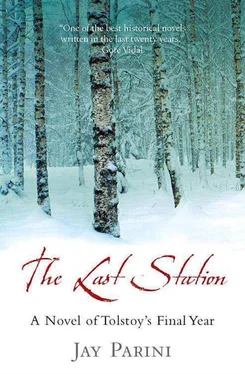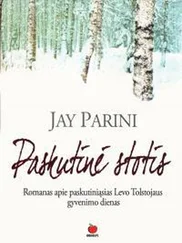When she insisted that I roll onto my back, I hesitated. My erection could not be disguised. But I did so, and she put her hand upon it, gently, then her mouth.
I will never understand why I let her complete this grotesque, unnatural act. It would have been far less damning in the eyes of God had I actually committed sexual intercourse with her. But I felt utterly helpless, weak as a whippet, unable to speak or move. I let her proceed to the terrible finish.
When she was done, she said, ‘And how did you like that, my dear Anton? Pretty good, no? Shall I come back tomorrow night?’
‘There is money for you in that envelope on the dressing table. Please take it and leave me alone. I never want to see you again.’
‘You enjoyed that, didn’t you?’
‘Please,’ I said. ‘Please let me alone now.’
She looked unexpectedly downcast as she left. And I realized now how old she was, perhaps forty or fifty. To my surprise, I felt sorry for her. She was just another of God’s creatures. What she did for a living was a burden, her burden. Had she, perhaps, been a princess in another life? Or an animal of some kind?
‘Everything is holy,’ Leo Nikolayevich said to me recently. ‘Everything that lives is part of God.’
I agreed with him and told him of my fascination with the Hindu religion and reincarnation. He dismissed the idea, saying it is ‘interesting but not plausible.’
I am less convinced. Sometimes I worry that I accept whatever he tells me without questioning. At times, Leo Nikolayevich is so utterly unconventional, ready to defy any tenet of Orthodox Christianity. Other times, he seems oddly scriptural and dogmatic. But I rarely argue with him. It is not my nature.
What I know is that I love God, that my duty is to serve man, and that by serving man, I serve God. I also serve the mystery and spirit that inhabit the body of Leo Tolstoy. I have been privileged to dwell under his roof, to have access to him on a daily basis. I have been singled out by God for this assignment, however difficult at times the task may seem.
I rode back to Telyatinki on a horse borrowed from Chertkov’s stables, a white mare with a powerful, slightly concave back and black hairs on its rump. As I rode, a storm gathered in the west. Clouds thickened at the edges and turned opaque, with large purple underbellies. A thunderhead drove a school of mackerel-like wisps into the darkening east. It is rare to see such drama in winter. Now the pink rim of Zasyeka Wood turned violet. Sunlight glowered on the fields, with long shadows cast by every tree and hillock. A rich wind, damp and gusty, blew up from the south. I kept thinking about Masha.
She has become my closest friend at Telyatinki, though we have to be careful we don’t spend too much time in each other’s company. Sergeyenko is a dreadful puritan about such things, and though he doesn’t actually ban sexual relations, he makes sure that everyone understands Leo Nikolayevich’s ideas on the subject. ‘Better to marry than to burn’ is Sergeyenko’s rather too Pauline philosophy. He often reads aloud from the Confessions of St Augustine of Hippo, with whom he shares an aversion to sex (though Augustine’s later puritanism arose from a rakish past). He also favors those Buddhist scriptures that preach the insignificance of the physical world. The spirit, he says, is all that matters. ‘We are ephemera. Flotsam and jetsam thrown up by the universal spirit.’
It’s not that I utterly disagree with Sergeyenko – or Augustine, for that matter. It seems useless to let one’s physical desires control one’s life or interfere with the progress of the soul. The object of sexual relations is necessarily reproductive. One copulates to propagate the race. Taken so, copulation fits nicely into the broad scheme of human activity. But the needs of the spirit dwarf the requirements of the flesh – that is, they ought to. There is no point in living like an animal, ignoring the goal of existence, which is union with God. Man is man because God gave him the powers of reflection. These powers enable him to understand his place in the divine creation.
Mind is the great gift, the Promethean fire handed to human beings by the gods, which is why Leo Nikolayevich places so much importance on study, on contemplation. My grandmother always told me to pray without thinking. But thinking is the only way to make sense of life, to learn to live with the fact of death, the possibility of extinction.
In my teens, I found myself drawn to indecent images and thoughts. I realize now that the issue of decency is bogus. Is it decent for the tsar to force young Russian men to kill young men from other countries, in the most brutal ways? Is it decent for society to allow people to starve in the streets, to die alone in miserable little isbas, to live like rats in Moscow sewers? Slavery of any kind – economic, military, social – is indecent. But sexual activity, how men and women choose to combine their physical parts, is completely neutral. It is merely the energy devoted to it – the time it takes away from proper mental and spiritual work – that debases it.
I saw Masha in the distance, cutting wood with a double-bladed ax. Not what most Russians think of as women’s work. I stopped my horse and watched as sunlight glistened off the sharp steel blade. Her thick fur hat nearly covered her eyes.
‘How can you see what you’re doing?’ I asked, approaching on horseback.
She kept swinging. ‘You’re done for the day?’
‘Leo Nikolayevich was playing chess with Sukhotin. He didn’t need me this afternoon. I was asked to stay for dinner, but I decided to come home.’
‘Why?’ She paused, stretching her back. Wind lifted her long hair and made her dress flap. Her ankles were slender, protected by canvas spatterdashes.
‘I felt like it.’ I let that sink in. ‘Anyway, there’s going to be a storm.’
‘I made a pot of soup, Valya. We can eat together in the kitchen when I’m done with chopping.’
I do not like the idea of women chopping wood. But the women among the Tolstoyans oppose separate work. Masha is adamant on this subject.
‘You will be the next tsar, Masha,’ Sergeyenko teases her.
Leo Nikolayevich’s attitudes toward women are mildly reactionary, even though he imagines himself liberal. He would never let Sasha chop wood.
‘I’m hungry,’ I said.
‘You’re always hungry, Valya.’
She had invented the name Valya from Valentin, which she claims is far too serious a name for me.
While she finished at the woodpile, I put the horse in his stall, unsaddled him, brushed him down. His rich white coat steamed in the cool barn. A couple of boys, local muzhiks, forked hay from the loft into the wooden stalls. I felt warm inside, happy. The mingling smell of straw and mud filled the little enclosed night of the barn. Shards of sunlight splintered through the roof.
As I walked toward the big house, it began to sleet, a diagonal slush that drilled the mud, that whitened the brown grass, that popped off the wooden steps and broad pine boards of the porch. Telyatinki is a rambling, ungainly structure, somewhat crudely made of scraped logs, with a simplicity inside that reminds one of a country schoolhouse. The plank floors are waxed, then buffed to a mirrorlike sheen. We take turns doing this work on a biweekly rotation drawn up by Sergeyenko, who has a passion for schedules and lists.
Masha joined me in the kitchen. She poured a thick, salty broth with carrots and beets into clay bowls that we had fashioned ourselves the week before and hardened in the oven. We ate with big wooden spoons, alone. There was plenty of black bread, which the women bake every Sunday afternoon, and freshly churned white butter. Neither of us spoke for a while.
Читать дальше












